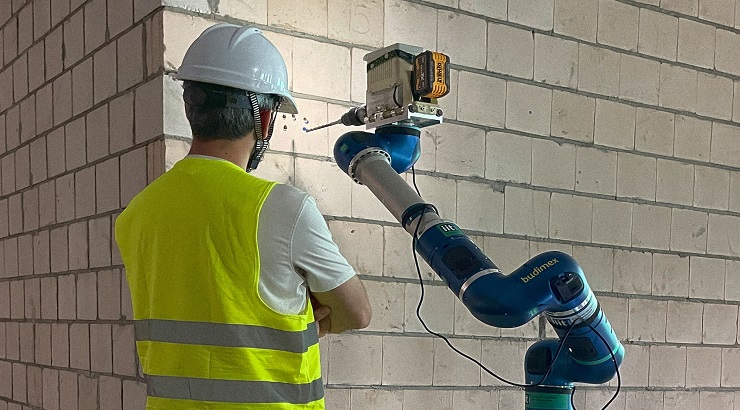Innovation
Italian Techies Unveil Game-Changing Construction Robot
Concert can drill with 1mm accuracy and carry payloads up to 180 kilos.

Researchers in Italy have developed a construction robot designed to handle a wide range of tasks, which promises to tackle the labour shortage in the construction industry.
Unlike traditional robots limited to specific tasks, Concert — as the bot is christened — can do various jobs, from drilling and spraying insulation to sanding and transporting materials.
Concert, created by the Italian Institute of Technology, is described as the world’s most modular building robot. It features a mobile base with motorised adjustable wheels enabling it to travel over various types of terrain.
The robot’s adjustable modular arm can be fitted with different tools depending on the task at hand, so it can be used for a variety of construction tasks.
Concert performed effectively during field testing at a construction site in Krakow, Poland. In particular, it was able to drill holes with 1mm accuracy and carried loads up to 180 kilos.
The robot achieves this precise measurement through various advanced sensors such as laser scanners, 3D cameras, and ultrasonic sensors, that are used for site navigation, detecting obstructions and personnel, and working safely with humans.
During the tests, Concert also carried out hazardous tasks, including spraying insulation—a job too dangerous for humans—together with sanding walls, a dull and monotonous activity typically performed manually.
However, the trial period was not without its challenges. Concert struggled in extreme temperatures, both high and low, and the user interface needed refinement to ensure it could be operated by workers without technical training.
Despite these hurdles, the team is confident the robot will be ready for market in two to three years. Nikolaos Tsagarakis, the project coordinator, stated, “The robot will be optimised and reliable when it hits the market.”
RELATED: Drywall Finishing Robot That Perfectly Imitates Humans
The development of Concert was made possible by a $3 million grant from the European Union, with collaboration from Budimex, one of Poland’s largest construction companies.
After three years of research and development, followed by extensive field testing, the team is set to introduce the robot to the market.
While some fear that robots like Concert might replace human workers, Tsagarakis argues that the technology is intended to assist, not replace.
“Robots will eliminate some jobs and create others,” he explained.
By taking over dangerous, repetitive tasks, Concert aims to improve both safety and productivity on construction sites, attracting a new generation of workers to the industry.
As the robot nears its commercial debut, it could play a pivotal role in reshaping the construction industry, helping to solve labour shortages while increasing efficiency and safety on job sites.














